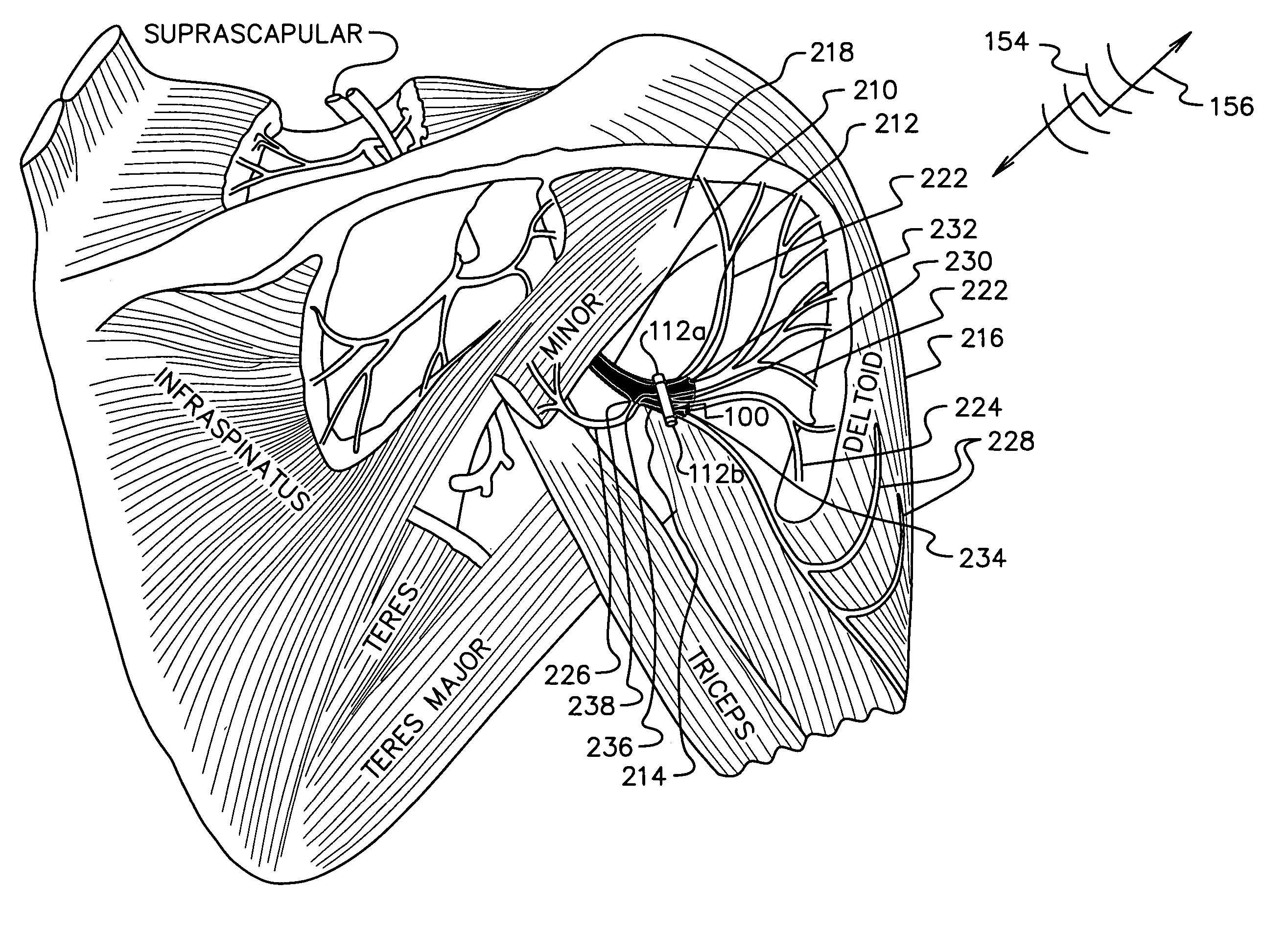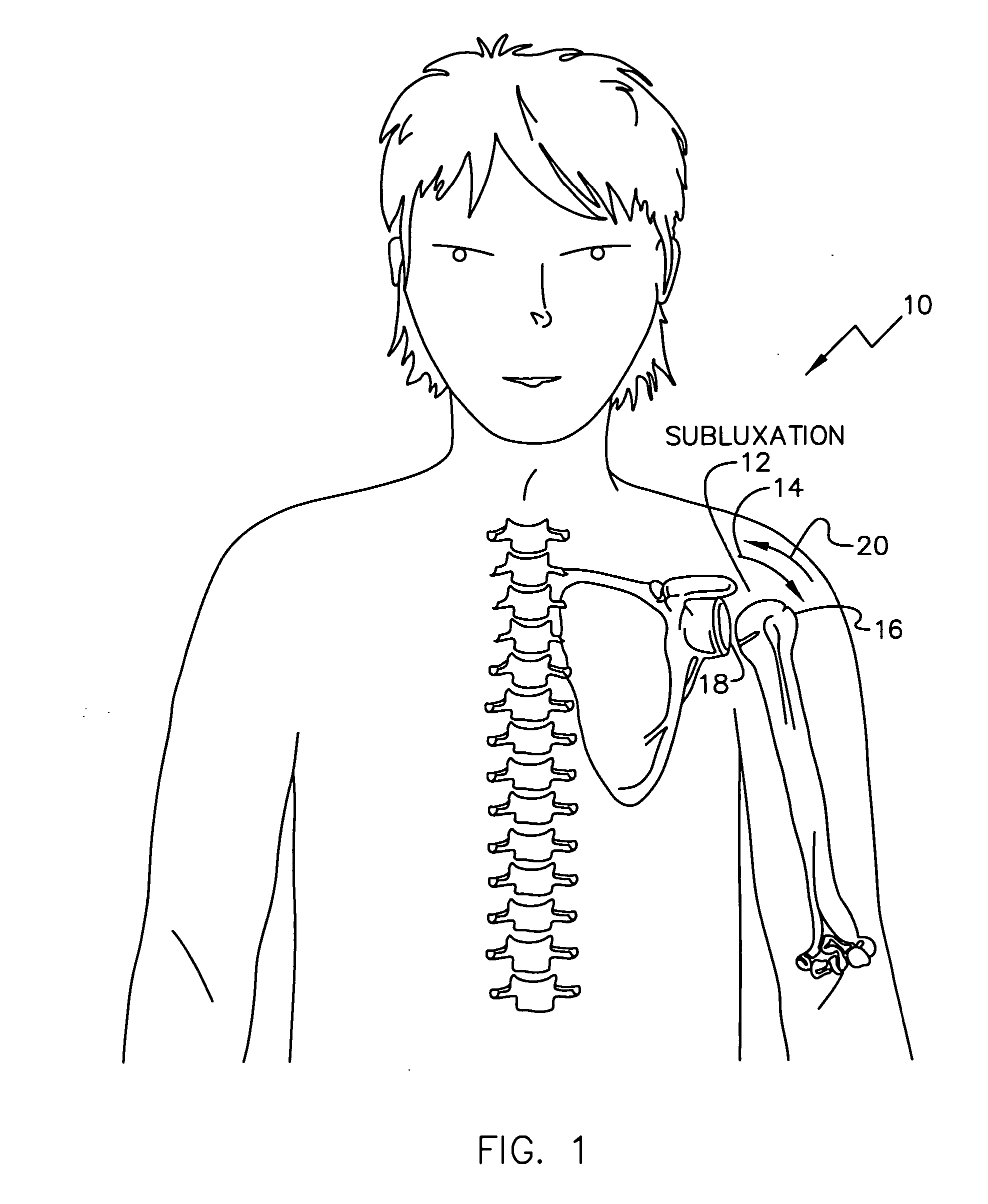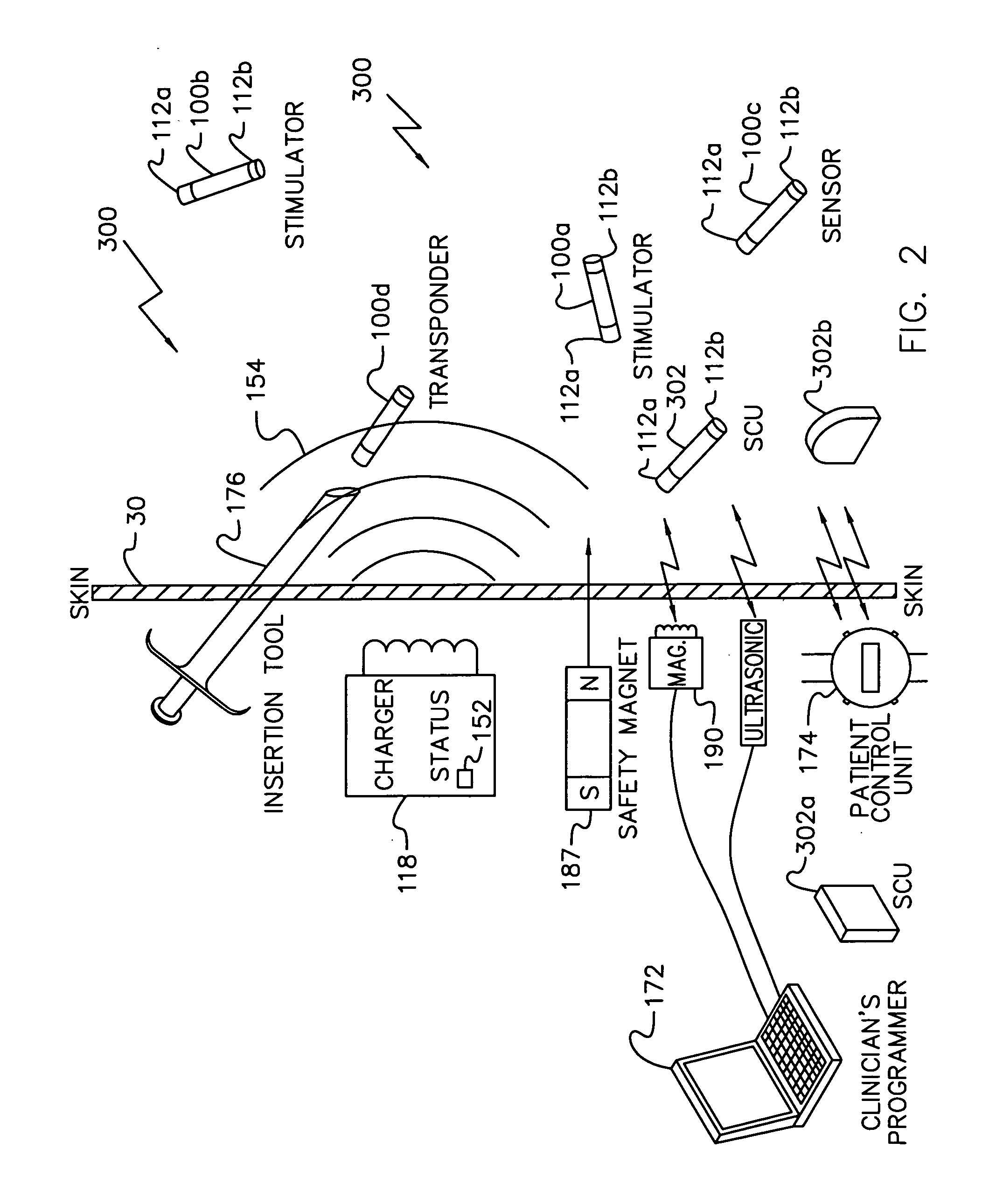Electrical treatment to treat shoulder subluxation
a technology of electric treatment and shoulder subluxation, which is applied in the field of electric treatment of shoulder subluxation, can solve the problems of limb paralysis, shoulder joint disuse atrophy, and loss of upper motor control
- Summary
- Abstract
- Description
- Claims
- Application Information
AI Technical Summary
Benefits of technology
Problems solved by technology
Method used
Image
Examples
Embodiment Construction
[0022] The following description is of the best mode presently contemplated for carrying out the invention. This description is not to be taken in a limiting sense, but is made merely for the purpose of describing the general principles of the invention. The scope of the invention should be determined with reference to the claims.
[0023] The present invention is generally directed to methods for treating the pain and possible weakness / atrophy from shoulder subluxation, e.g., following a stroke, via the use of one or more medical devices configurable for implantation to stimulate the axillary nerve which in turn activates sensory fibers to relieve shoulder pain and activates the deltoid muscle of the affected shoulder to treat the condition resulting from disuse atrophy of the affected muscles and shoulder joint. As shown in FIG. 1, the exemplary patient 10 is experiencing shoulder subluxation of the shoulder joint 12, shown as a downward movement (vector 14) primarily due to gravity...
PUM
 Login to View More
Login to View More Abstract
Description
Claims
Application Information
 Login to View More
Login to View More - R&D
- Intellectual Property
- Life Sciences
- Materials
- Tech Scout
- Unparalleled Data Quality
- Higher Quality Content
- 60% Fewer Hallucinations
Browse by: Latest US Patents, China's latest patents, Technical Efficacy Thesaurus, Application Domain, Technology Topic, Popular Technical Reports.
© 2025 PatSnap. All rights reserved.Legal|Privacy policy|Modern Slavery Act Transparency Statement|Sitemap|About US| Contact US: help@patsnap.com



